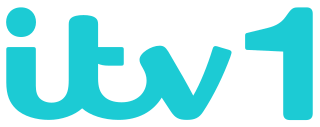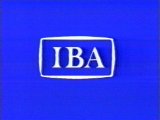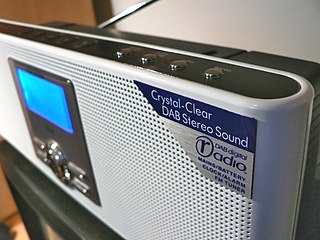
Channel 4 is a British free-to-air public broadcast television channel owned and operated by Channel Four Television Corporation. It is publicly owned but, unlike the BBC, it receives no public funding and is funded entirely by its commercial activities, including advertising. It began its transmission in 1982 and was established to provide a fourth television service in the United Kingdom. At the time, the only other channels were the licence-funded BBC1 and BBC2, and a single commercial broadcasting network, ITV.
Telecommunications in the United Kingdom have evolved from the early days of the telegraph to modern broadband and mobile phone networks with Internet services.

ITV, legally known as Channel 3, is a British free-to-air public broadcast television network. It is branded as ITV1 in most of the UK except for central and northern Scotland, where it is branded as STV. It was launched in 1955 as Independent Television to provide competition and reduce the current monopoly to the then BBC Television. ITV is the oldest commercial network in the UK. Since the passing of the Broadcasting Act 1990, it has been legally known as Channel 3 to distinguish it from the other analogue channels at the time: BBC1, BBC2 and Channel 4.
Television broadcasts in the United Kingdom began in 1932, however, regular broadcasts would only begin four years later. Television began as a public service which was free of advertising, which followed the first demonstration of a transmitted moving image in 1926. Currently, the United Kingdom has a collection of free-to-air, free-to-view and subscription services over a variety of distribution media, through which there are over 480 channels for consumers as well as on-demand content. There are six main channel owners who are responsible for most material viewed.

The Independent Television Commission (ITC) licensed and regulated commercial television services in the United Kingdom between 1 January 1991 and 28 December 2003.

The Office of Communications, commonly known as Ofcom, is the government-approved regulatory and competition authority for the broadcasting, telecommunications and postal industries of the United Kingdom.

ITV Meridian is the holder of the ITV franchise for the South and South East of England. The station was launched at 12:00 am on 1 January 1993, replacing previous broadcaster Television South, and is owned and operated by ITV plc, under the licensee of ITV Broadcasting Limited. Meridian Broadcasting Ltd was one of several ITV plc-owned regional companies to have its legal name changed on 29 December 2006, when it became ITV Meridian Ltd. This company is, along with most other regional companies owned by ITV plc, listed with Companies House as a "Dormant company".

The Independent Broadcasting Authority (IBA) was the regulatory body in the United Kingdom for commercial television – and commercial and independent radio broadcasts. The IBA came into being when the Sound Broadcasting Act 1972 gave the Independent Television Authority responsibility for organising the new Independent Local Radio (ILR) stations. The Independent Television Commission formally replaced the IBA on 1 January 1991 in regulatory terms; however, the authority itself was not officially dissolved until 2003.
United Kingdom Independent Broadcasting (UKIB) is an affiliation of three British independent television production companies and broadcasters. The primary function of its predecessor, the Independent Television Companies Association (ITCA), was to represent independent British television interests as a member of the European Broadcasting Union (EBU). The current members of UKIB are the ITV network centre, the 4 ITV licence holders, Channel 4, and S4C.
A UK Restricted Service Licence is typically granted to radio stations and television stations broadcasting within the UK to serve a local community or a special event. Licences are granted by the broadcasting authority Ofcom.
Pirate radio in the United Kingdom has been a popular and enduring radio medium since the 1960s, despite expansions in licensed broadcasting, and the advent of both digital radio and internet radio. Although it peaked throughout the 1960s and again during the 1980s/1990s, it remains in existence today. Having moved from transmitting from ships in the sea to tower blocks across UK towns and cities, in 2009 the UK broadcasting regulator Ofcom estimated more than 150 pirate radio stations were still operating.

The Communications Act 2003 is an Act of the Parliament of the United Kingdom. The act, which came into force on 25 July 2003, superseded the Telecommunications Act 1984. The new act was the responsibility of Culture Secretary Tessa Jowell. It consolidated the telecommunication and broadcasting regulators in the UK, introducing the Office of Communications (Ofcom) as the new industry regulator. On 28 December 2003 Ofcom gained its full regulatory powers, inheriting the duties of the Office of Telecommunications (Oftel). Among other measures, the act introduced legal recognition of community radio and paved the way for full-time community radio services in the UK, as well as controversially lifting many restrictions on cross-media ownership. It also made it illegal to use other people's Wi-Fi broadband connections without their permission. In addition, the legislation also allowed for the first time non-European entities to wholly own a British television company.

Broadcast law and Electricity law is the field of law that pertains to broadcasting. These laws and regulations pertain to radio stations and TV stations, and are also considered to include closely related services like cable TV and cable radio, as well as satellite TV and satellite radio. Likewise, it also extends to broadcast networks.
Independent National Radio (INR) is the official term for the three national commercial radio stations currently or previously broadcasting on analogue radio in the United Kingdom, beginning in 1992. One station was allocated an FM licence, and the other two were allocated AM medium wave frequencies previously used by BBC Radio 3 and BBC Radio 1.

In the United Kingdom, the roll-out of digital radio has been proceeding since engineering test transmissions were started by the BBC in 1990 followed by a public launch in September 1995. The UK currently has one of the world's biggest digital radio networks, with about 500 transmitters, three national DAB ensembles, one regional DAB ensemble, 48 local DAB ensembles and an increasing number of small-scale DAB ensembles broadcasting over 250 commercial and 34 BBC radio stations across the UK. In London there are already more than 100 different digital stations available. In addition to DAB and DAB+, radio stations are also broadcast on digital television platform as well as internet radio in the UK. Digital radio ensemble operators and stations need a broadcasting licence from the UK's media regulator Ofcom to broadcast.
The Ofcom Code on Sports and Other Listed & Designated Events is a series of regulations issued originally by the Independent Television Commission (ITC) then by Ofcom when the latter assumed most of the ITC's responsibilities in 2003, which is designed to protect the availability of coverage of major sporting occasions on free-to-air terrestrial television in the United Kingdom.
China Global Television Network (CGTN) is one of three branches of state-run China Media Group and the international division of China Central Television (CCTV). Headquartered in Beijing, CGTN broadcasts news in multiple languages. CGTN is under the control of the Central Propaganda Department of the Chinese Communist Party.
This article covers cricket broadcasting rights. For a list of sports broadcasting rights by countries, see list of sports television broadcast contracts.

GB News is a British free-to-air, opinion-orientated news television and radio channel. The channel is available on Freeview, Freesat, Sky, YouView, Virgin Media and via the internet on Samsung TV Plus and YouTube. An audio simulcast of the station is also available on DAB+ radio.










